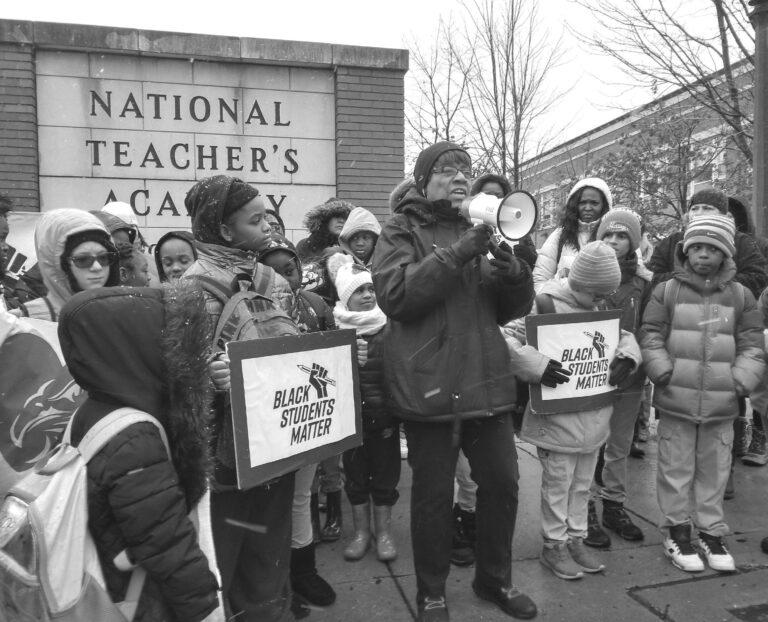Chicago Education Board Approves Nearly $4 Million in Legal Settlements Amid Financial Strains
The Chicago Board of Education has recently sanctioned an allocation approaching $4 million to resolve a variety of legal claims against the district. This considerable financial commitment highlights the ongoing legal complexities the board must manage while striving to maintain educational services within a constrained budget. The settlements cover diverse cases, reflecting the board’s dedication to addressing disputes promptly to reduce interruptions to the school system’s core mission.
Key aspects of this financial decision include:
- Budgetary allocation: Close to $4 million diverted from educational initiatives to cover legal settlements.
- Transparency: Public disclosure of settlement details aligns with accountability expectations.
- Long-term effects: Mitigation of ongoing legal expenses and uncertainty through resolution.
| Settlement Type | Approved Amount | Number of Cases |
|---|---|---|
| Staff-Related Disputes | $1,200,000 | 8 |
| Contractual Issues | $1,500,000 | 5 |
| Student-Involved Cases | $1,250,000 | 10 |
In-Depth Review of Settlement Categories and Their Enduring Impact on Chicago Public Schools
The Board’s recent approval of nearly $4 million in settlements brings to light persistent challenges within Chicago Public Schools. These cases predominantly involve employment grievances, special education compliance, and civil rights concerns. While these resolutions provide closure for involved parties, the financial burden on the district’s budget is significant, especially as demands for educational resources continue to grow. Experts suggest these payouts underscore the urgent need for systemic reforms to reduce future legal exposure.
Highlighted areas affected by these settlements include:
- Workplace Issues: Several claims involved allegations of wrongful dismissal and discrimination, pointing to ongoing challenges in ensuring equitable employment practices.
- Special Education Compliance: Disputes over adherence to Individualized Education Programs (IEPs) reveal critical gaps in services for students with disabilities.
- Civil Rights Concerns: Settlements related to civil rights violations emphasize the necessity for a more inclusive and respectful school environment.
| Case Category | Settlement Amount | Projected Long-Term Outcome |
|---|---|---|
| Employment Disputes | $1.5 million | Enhanced policies and staff training |
| Special Education | $1.2 million | Better IEP adherence and support services |
| Civil Rights | $1.3 million | Strengthened anti-discrimination programs |
Strategies to Mitigate Legal Risks and Prevent Future Litigation
To curb escalating legal costs and lessen dependency on settlements,the Chicago Board of Education must adopt a forward-thinking strategy.Conducting thorough contract evaluations and bolstering employee education on legal standards can reduce misunderstandings that often lead to disputes. Cultivating transparent communication channels among administrators, staff, and community stakeholders is vital for early detection and resolution of potential conflicts before they escalate.
Moreover, implementing a comprehensive risk management system tailored to the educational sector’s unique challenges is crucial. Leveraging advanced compliance monitoring technologies can provide real-time alerts on emerging legal risks. The following table outlines actionable recommendations alongside their expected benefits in minimizing future liabilities:
| Recommended Action | Anticipated Benefit |
|---|---|
| Routine Policy Reviews | Early identification and correction of policy gaps |
| Conflict Management Training | Lower incidence of disputes escalating to lawsuits |
| Enhanced Stakeholder Communication | Greater transparency and community trust |
| Automated Compliance Monitoring | Immediate detection of legal risks |
Community and Stakeholder Perspectives on the Board’s Settlement Decisions
The Chicago Board of Education’s recent settlement approvals have elicited varied reactions from local residents and advocacy organizations. While some community members voiced concerns about the financial strain these payouts place on educational funding, others stressed the importance of resolving legal matters promptly to allow the district to concentrate on enhancing student achievement. Parents expressed unease regarding the potential impact of the nearly $4 million settlement expenditure on classroom resources and extracurricular activities.
Feedback from key groups highlighted the following themes:
- Calls for increased transparency around settlement specifics to foster public confidence.
- Advocacy for stronger preventative measures to avoid future legal conflicts.
- Support for maintaining accountability while prioritizing investments that directly benefit students.
| Group | Response | Main Concern |
|---|---|---|
| Parents | Mixed feelings; worried about budget cuts | Funding for classrooms |
| Teachers’ Unions | Support for stronger accountability | Fair treatment and dispute prevention |
| Community Advocates | Demand transparency in financial decisions | Public trust and oversight |
Conclusion
As the Chicago Board of Education proceeds with these significant legal settlements, the root causes behind these costly disputes remain a focal point for scrutiny. District leaders have committed to enhancing oversight and implementing measures to prevent recurrence, yet education advocates continue to call for greater openness and obligation. The influence of these settlements on the district’s financial health and educational priorities will remain under close observation by community members and stakeholders moving forward.





